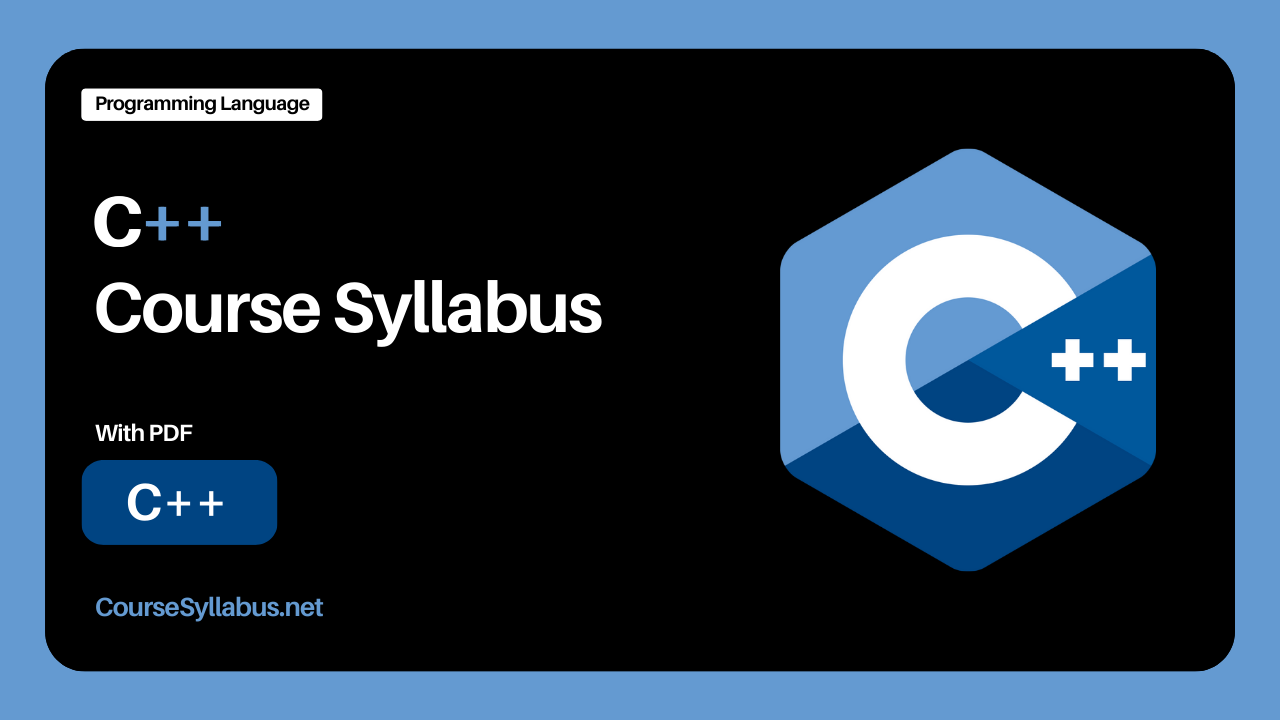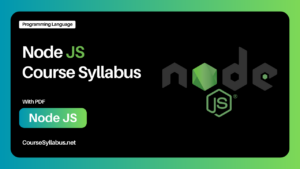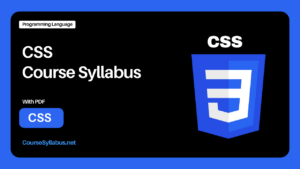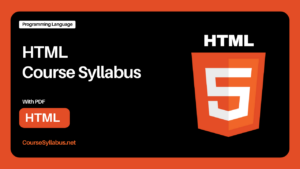C++ is a powerful and versatile programming language that is widely used in software development. Developed by Bjarne Stroustrup in the early 1980s, C++ is an extension of the C programming language with additional features such as object-oriented programming (OOP) capabilities.
C++ Course Syllabus
Module 1: Introduction to C++
- Overview of C++
- History and Evolution
- Features of C++
- Setting up Development Environment
- Your First C++ Program
Module 2: Basic Concepts
- Variables and Data Types
- Constants and Literals
- Operators and Expressions
- Input and Output (I/O) Operations
- Basic Input/Output Library (iostream)
Module 3: Control Structures
- Conditional Statements (if, else, else-if)
- Switch Statement
- Loops (while, do-while, for)
- Nested Control Structures
- Break and Continue Statements
Module 4: Functions
- Function Declaration and Definition
- Function Arguments and Return Types
- Function Prototypes
- Pass by Value vs. Pass by Reference
- Recursion
- Inline Functions
Module 5: Arrays and Strings
- Introduction to Arrays
- One-dimensional and Multi-dimensional Arrays
- Strings in C++
- String Handling Functions
- Character Arrays vs. String Class
- String Input/Output Operations
Module 6: Pointers and References
- Introduction to Pointers
- Pointer Arithmetic
- Dynamic Memory Allocation (new and delete)
- Pointers and Arrays
- References
- Pointers to Functions
Module 7: Object-Oriented Programming (OOP)
- Introduction to OOP
- Classes and Objects
- Access Specifiers (public, private, protected)
- Member Functions and Data Members
- Constructors and Destructors
- Operator Overloading
Module 8: Inheritance and Polymorphism
- Inheritance
- Types of Inheritance (Single, Multiple, Hierarchical, Multilevel)
- Base and Derived Classes
- Polymorphism
- Virtual Functions
- Abstract Classes and Pure Virtual Functions
Module 9: File Handling
- File Input/Output Operations
- Opening and Closing Files
- Reading and Writing Text Files
- File Pointers and File Handling Functions
- Error Handling in File Operations
Module 10: Standard Template Library (STL)
- Overview of STL
- Containers (Vectors, Lists, Maps, Sets)
- Iterators
- Algorithms (Sorting, Searching, etc.)
- Function Objects (Functors)
- Using STL in Practice
Module 11: Exception Handling
- Understanding Exceptions
- try-catch Blocks
- Throwing Exceptions
- Exception Class Hierarchy
- Custom Exception Handling
Module 12: Advanced Topics (Optional)
- Templates
- Smart Pointers
- Lambda Expressions
- Multithreading Basics
- Graphics in C++ (SDL, SFML)
- Introduction to Boost Library
Module 13: Project Work
- Final Project Assignment
- Implementation of a Real-world Application
- Project Presentation and Evaluation
C++ Learning Resources
There are many resources available for learning C++ ranging from online tutorials and courses to books and interactive platforms. Here are some popular options:
Time for Learning C++
- Basic Understanding (1-3 months): Learn C++ syntax, data types, control structures, and basic OOP concepts.
- Intermediate Proficiency (3-6 months): Gain deeper knowledge of classes, inheritance, polymorphism, memory management, and standard library features.
- Advanced Mastery (6+ months): Achieve proficiency in advanced techniques like template metaprogramming, concurrency, and optimization, through practice and working on larger projects.
Key Points and Features of C++
- High-Level Language: C++ is a high-level programming language, meaning it abstracts complex tasks, making it easier for programmers to write and understand code.
- General Purpose: C++ is a versatile language suitable for developing a wide range of software applications, including system software, application software, games, and embedded systems.
- Object-Oriented Programming (OOP): C++ supports OOP principles such as encapsulation, inheritance, polymorphism, and abstraction, allowing for the creation of modular, reusable, and maintainable code.
- Efficiency: C++ provides low-level access to system resources and allows for fine-grained control over memory management, making it highly efficient and suitable for performance-critical applications.
- Portability: C++ code can be compiled to run on different platforms with minimal modifications, making it a portable language.
- Standard Library: C++ comes with a rich standard library that provides a wide range of functions and data structures for common programming tasks, including input/output operations, string manipulation, containers, algorithms, and more.
- Template Metaprogramming: C++ supports template metaprogramming, allowing for generic programming and the creation of reusable code that works with any data type.
- Multi-paradigm: C++ supports multiple programming paradigms, including procedural, object-oriented, and generic programming, giving developers flexibility in choosing the best approach for their projects.
- Compatibility with C: C++ is largely compatible with the C programming language, allowing for easy integration of existing C code and access to C libraries.
- Community and Resources: C++ has a large and active community of developers, along with extensive documentation, tutorials, forums, and libraries, making it easier to learn and develop in the language.
Career Opportunities for C++
- Software Development Engineer: Develop system software, applications, and performance-critical systems.
- Game Developer: Create games and game engines, from indie to large studios.
- System Programmer: Design operating systems, device drivers, and real-time systems.
- Quantitative Developer: Build high-frequency trading systems and financial models.
- Tools and Middleware Development: Develop compilers, debuggers, and developer tools.
- Embedded Systems Engineer: Work on firmware, IoT devices, and automotive systems.
- Research and Development (R&D): Implement complex algorithms and simulations.
- Cybersecurity Specialist: Develop security tools and analyze software vulnerabilities.
Conclusion:
Mastering C++ unlocks a wide array of career opportunities across industries such as software development, gaming, finance, and cybersecurity. With its versatility and high demand, proficiency in C++ is a valuable asset in today’s job market, offering fulfilling and rewarding career paths.




